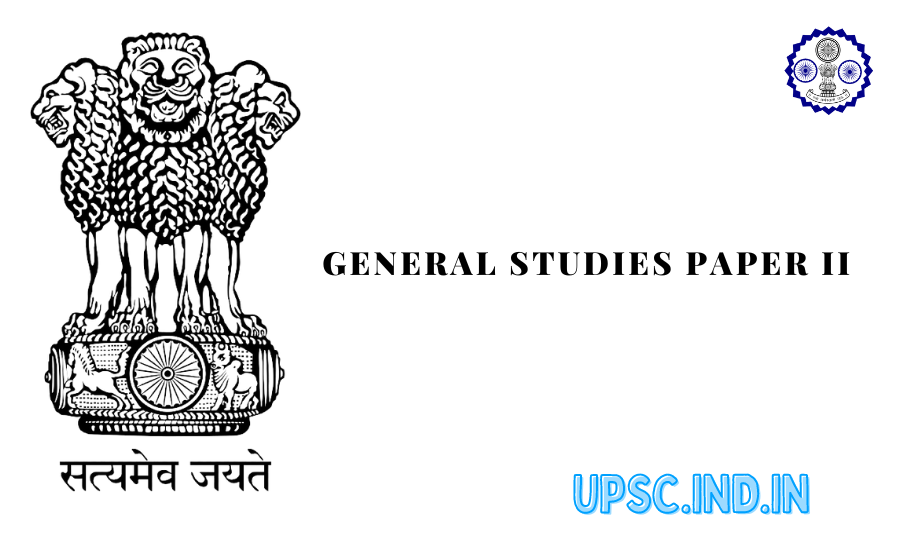General Studies Paper II (GS 2)
In the realm of competitive exams, General Studies Paper II holds a distinctive place as a test of aptitude, comprehension, and decision-making skills. Often referred to as the “CSAT” (Civil Services Aptitude Test), this paper assesses candidates’ abilities in reasoning, numerical analysis, comprehension, and interpersonal skills. This article delves into the core components of General Studies Paper II, strategies for effective preparation, and its significance in the world of competitive examinations.
Join Telegram Group – JOIN US
JOIN US DAILY BASE ON INSTAGRAM UPDATE – JOIN NOW
THE hindu newspapers download ——
Understanding General Studies Paper II: Beyond the Basics
General Studies Paper II serves as a gateway to measure candidates’ cognitive abilities and analytical thinking. This paper aims to evaluate skills that are crucial for administrative roles, such as understanding complex situations, making informed decisions, and effectively communicating ideas.
Logical Reasoning and Analytical Abilities: Unraveling the Puzzles
This section evaluates candidates’ logical reasoning and critical thinking abilities. It presents scenarios, puzzles, and logical problems that test one’s ability to deduce conclusions, identify patterns, and draw logical inferences.
Numerical Analysis: Crunching the Numbers
The numerical analysis component assesses candidates’ quantitative aptitude. It includes questions on mathematical concepts, data interpretation, and problem-solving involving numerical data. Proficiency in basic mathematical operations and quick calculations is essential.
Reading Comprehension: Navigating Textual Terrain
In this section, candidates’ reading comprehension skills are put to the test. They are presented with passages followed by questions that gauge their understanding of the text, ability to extract information, and draw conclusions.
Interpersonal and Communication Skills: Art of Effective Expression
This section evaluates candidates’ ability to communicate effectively, understand social dynamics, and interpret information. Questions may revolve around decision-making, ethical scenarios, and assessing the impact of actions on various stakeholders.
Strategies for Acing General Studies Paper II
- Understand the Pattern: Familiarize yourself with the exam pattern, types of questions, and allotted time for each section. This will help you allocate time effectively during the exam.
- Practice Regularly: Consistent practice is key. Solve a variety of questions from different topics, focusing on those you find challenging. Regular practice sharpens your skills and improves your speed.
- Master Time Management: During the exam, allocate time based on your familiarity and comfort level with different sections. Don’t spend too much time on one question; move on if you’re stuck and return later if time allows.
- Improve Reading Speed: Reading comprehension requires effective skimming and scanning techniques. Practice reading quickly while retaining essential information to answer questions accurately.
- Brush Up on Basics: Revise mathematical concepts and basic grammar rules. A strong foundation will boost your confidence in numerical analysis and reading comprehension.
- Stay Calm: During the exam, stay calm and focused. Overthinking can lead to mistakes. Trust your preparation and tackle each question systematically.
Significance in Competitive Exams: The CSAT Factor
General Studies Paper II, or the CSAT, plays a crucial role in determining candidates’ eligibility for administrative roles. While Paper I tests candidates’ knowledge of diverse subjects, Paper II evaluates their cognitive abilities, which are essential for effective decision-making, problem-solving, and interpersonal interactions in administrative roles.
Conclusion: Mastering the Art of Aptitude
General Studies Paper II is more than just an aptitude test; it’s a reflection of the skills and qualities required of administrators who steer nations forward. By honing your logical reasoning, numerical analysis, comprehension, and interpersonal skills, you equip yourself with the tools to excel not only in competitive exams but also in the challenges of real-world governance. Approach General Studies Paper II with dedication, practice, and a curious mind, and you’ll not only crack the test but also unlock the potential to drive positive change in society.
TO MORE DETAIL – CHECK THIS
FOLLOW US TO MORE DETAIL
What is General Studies Paper II (CSAT)?
General Studies Paper II, commonly referred to as CSAT (Civil Services Aptitude Test), is a component of competitive exams, particularly civil services examinations. It assesses candidates’ aptitude, reasoning, numerical analysis, reading comprehension, and interpersonal skills.
What does CSAT evaluate?
CSAT evaluates candidates’ cognitive abilities and skills essential for administrative roles, including logical reasoning, critical thinking, quantitative aptitude, effective communication, decision-making, and problem-solving.
How is CSAT different from other papers?
CSAT, or General Studies Paper II, focuses on evaluating aptitude and skills rather than subject-specific knowledge. It assesses candidates’ ability to analyze situations, make decisions, interpret information, and communicate effectively.
What are the components of CSAT?
CSAT typically consists of four main components: logical reasoning, numerical analysis, reading comprehension, and questions related to interpersonal skills and decision-making.
How can I prepare effectively for CSAT?
Effective preparation involves understanding the exam pattern, practicing regularly with a variety of questions, improving reading speed, mastering basic mathematical concepts, and managing time efficiently during the exam.
Is CSAT a qualifying paper or does it contribute to the final score?
The significance of CSAT varies based on the competitive exam. In some exams, CSAT is a qualifying paper, meaning candidates need to secure a minimum score to be eligible for further evaluation. In others, it contributes to the final score along with other papers.
How can I improve my reading comprehension skills?
To improve reading comprehension skills, practice reading a variety of texts, identify main ideas, key details, and supporting arguments. Work on skimming and scanning techniques to quickly extract relevant information.










